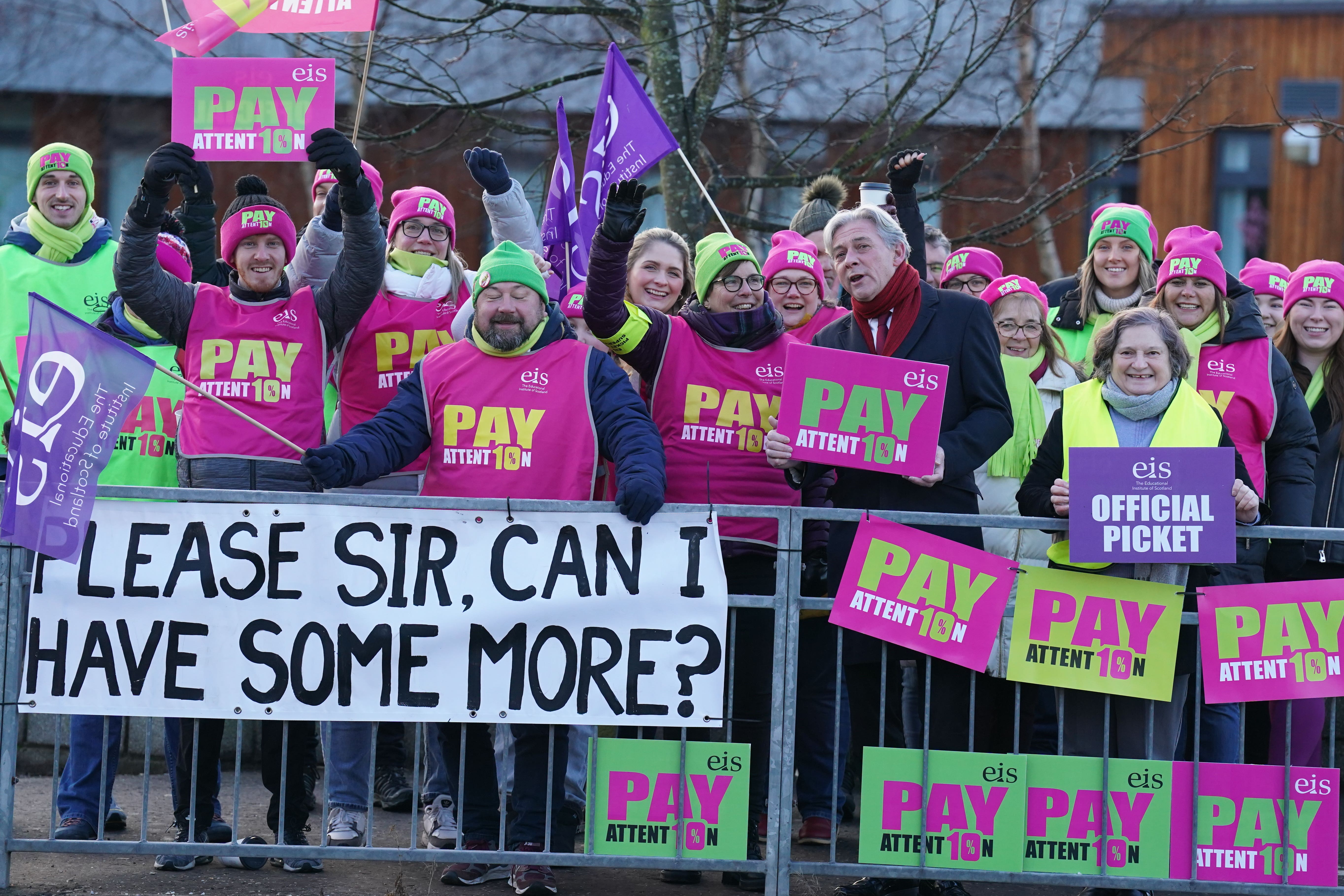Why the government’s new anti-strike law won’t be in force any time soon
Even Jacob Rees-Mogg thinks it’s a badly written bill, says Sean O’Grady


While schools and families face disruption from the teachers' strike, MPs are considering the new laws intended to limit the impact of future industrial action.
What is the Strikes (Minimum Service Levels) Bill?
It’s a new piece of legislation that the government says is needed to protect vital public services during strikes. It argues unions in some industries have disproportionate power to inconvenience people and damage the economy through strike action. In the case of health service strikes, it says the legislation will save lives and prevent delays to emergency care. Many see it as a law designed to smash workers’ rights and make strikes ineffective.
What does it cover?
A select list of sectors that nonetheless covers hundreds of thousands of workers in healthcare, fire and rescue, education, transport, nuclear waste and border security.
What is wrong with the bill?
Aside from the principle behind it, the actual bill is also unusually short on detail. Indeed, despite its title, there is no notion at all about what a minimum service level in the various sectors would look like. How many trains to London should run on a strike weekday from, say Edinburgh, Leeds or Guildford? The bill is silent. It simply allows a secretary of state to specify what a minimum service should be. Employers are empowered to “identify the persons required to work during the strike” in order to meet the (unspecified) minimum levels of service.
Employers are required to consult the unions and take into account the union’s views, but beyond that the employer has effective power to order people to work and forbid them to lawfully withdraw their labour.
The unprecedented powers don’t stop there. If unions don’t take “reasonable steps to ensure all members of the union … comply,” the employer can sue them for damages. In extremis, this could bankrupt a trade union; it would also poison industrial relations for a very long time.
Are there critics?
Yes, and they are varied. Jacob Rees-Mogg is the most prominent so far. Although he supports the aims of the bill, he finds it “skeletal” and says it gives too much power to ministers. “It is a badly written bill” that should “set out clearly what it is trying to achieve.”
He said in the Commons: “This is almost so skeletal that you wonder if bits of the bones have been stolen away by wild animals and taken and buried somewhere, as if, you know, in cartoons.”
Opposition parties are united in their condemnation. Labour says it will repeal it, neatly confirming the new law as a political dividing line. John McDonnell has suggested it will be used to victimise and dismiss union activists (despite a clause to the contrary in the bill).
What does the public think?
There is much sympathy for health workers and teachers; and some polls say the public supports strike action. But delays and disruption are unwelcome.
Do other countries have minimum service guarantees?
So it is claimed, but they tend to be negotiated and agreed with the unions concerned. The International Labour Organisation, a UN agency, has expressed concerns about the UK plan. Some say it violates basic human rights.
What happens next?
It’s off to the Lords and various Commons stages where it will get amended and subjected to legitimate questions about its practicality. The government has some limited protection for the bill and a democratic mandate because proposed legislation on minimum service levels is in the 2019 Conservative manifesto – but only confined to the railways. The manifesto states: “We will require that a minimum service operates during transport strikes. Rail workers deserve a fair deal, but it is not fair to let the trade unions undermine the livelihoods of others.”
There is also the near certainty that the new act, if passed, will find itself subject to judicial review. In any case it won't be law for some weeks, and is irrelevant to the current wave of strikes.
Will it work?
On balance, employers would be reluctant to use its provisions for fear of provoking non-strike union resistance, such as work-to-rule and overtime bans – perfectly legal even under this law, but highly disruptive. In the end, in an economy short of labour and skills, the workers have the economic power to defy the law.






Join our commenting forum
Join thought-provoking conversations, follow other Independent readers and see their replies
Comments